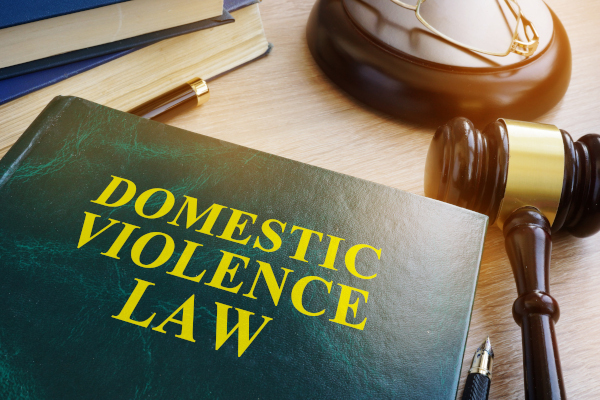Domestic Violence

Cherry Hill, New Jersey Domestic Violence Attorney
In New Jersey, if you believe a spouse, ex-spouse, boyfriend, or ex-boy friend poses a threat to you and your family, you can request that a restraining order be issued against him. Once a judge decides to issue a temporary restraining order, you are scheduled for a final hearing before a Family Part judge within 10 days. The Family Part judge will conduct a trial to determine whether or not the temporary restraining order should be made permanent. At the Cherry Hill family law office of Morgenstern & Rochester, we prepare evidence and gather eyewitness testimony to convince the court to make the temporary restraining order permanent and protect our client’s best interests.
We can help you file a restraining order – call Morgenstern & Rochester at (856) 489-6200 (856) 489-6200 today to learn more about restraining orders and how we can help you.
Regardless of whether you’re going through a divorce, custody battle, or other family law dispute, domestic violence can threaten the health and safety of you and your children. To learn more about restraining orders and how we can help you, contact domestic violence lawyers at Morgenstern & Rochester today.
What Happens after a Restraining Order Has Been Issued
Once a restraining order has been issued, the restrained person cannot contact you by phone, email, or in person; in short, he or she must avoid all communication with you. Additionally, a restraining order typically requires the restrained person to do the following:
- Vacate any premises shared with the protected person. Consequently, the restrained person must leave your apartment or home if you live together.
- Turn in any firearms he or she might own
- Avoid showing up at your place of work
- Avoid contacting your children or family
- Enter anger management or seek counseling if ordered by the court
What Happens if a Restrained Person Violates a Restraining Order?
Under N.J.S.A. 2C:29-9, the violation of a temporary or final restraining order is a criminal offense. As a result, a restrained person can be arrested and charged with contempt and sentenced to jail. Added to the specifics of New Jersey law are certain provisions under the Prevention of Domestic Violence Act of 1991. As a result, while domestic violence laws allow for incarceration as a result of the violation of a restraining order, penalties can vary depending on whether or not stalking, terroristic threats, a second violation, or a new act of domestic violence is involved.
Here, a mandatory 30-day jail sentence may be involved after the second violation. Alternatively, since violation of a final restraining order is a Fourth degree offense, if convicted a defendant could face up to 18 months in jail. When a Second or Third degree act of domestic violence is involved, jail sentences can increase.
Contact Cherry Hill Restraining Order Attorneys
Domestic violence is a serious issue that must be addressed with the full force of the law. If you are worried for the safety of you and your children, call the police first. Afterwards, contact Morgenstern & Rochester to help with any legal questions and issues you might have in representing your interests at the restraining order hearing ten days after a temporary restraining order has been issued.